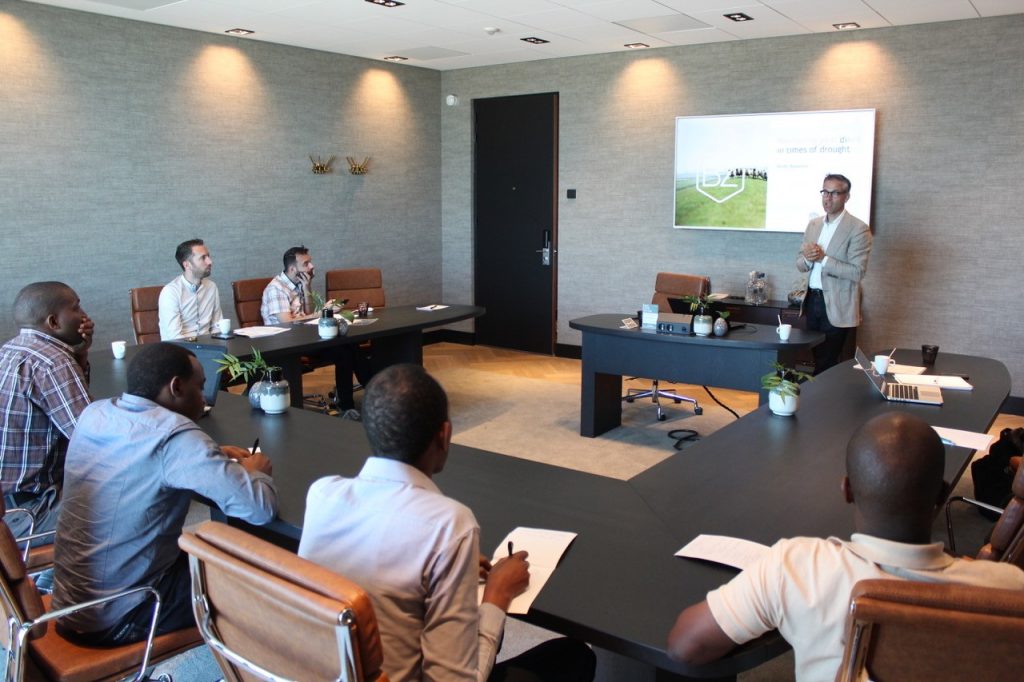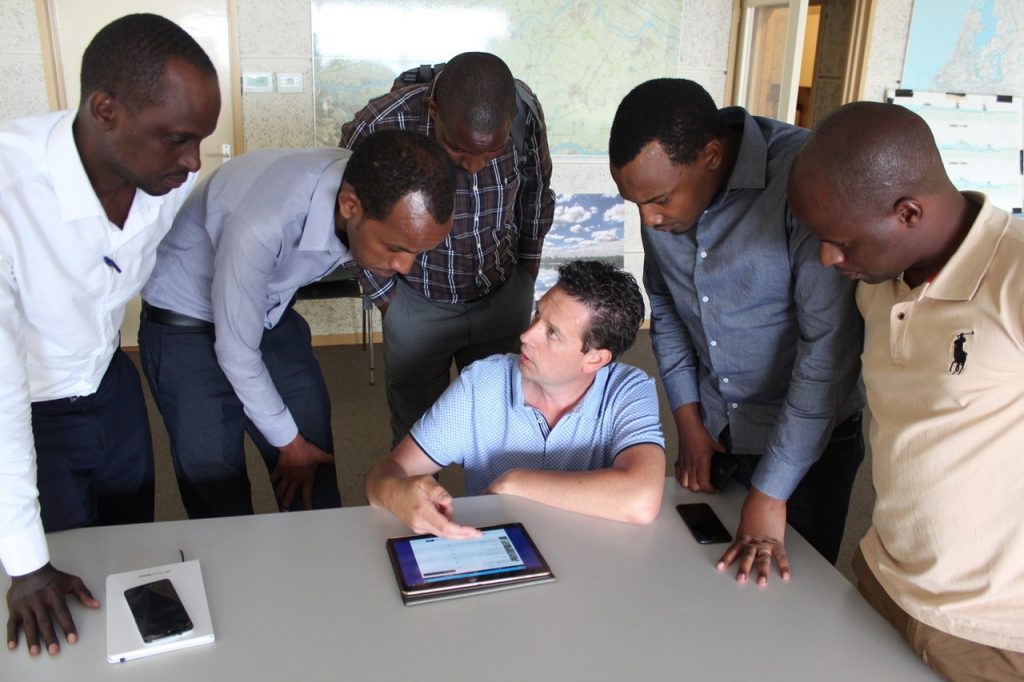This week a team of experts from the Rwandese government visited the Netherlands to learn from the Dutch water authorities about their experience on water management. The focus was on peat dikes, as this mission was embedded in a joint effort of the Rwandese and Dutch government to improve the flood safety and water security of the Kigali region. The Muhazi Lake is the principal water source for the capital. At the outlet there is a dike, which has the function of a dam, which is currently in an emergency state and has a high risk of collapse. A new dike will protect the livelihoods around the Lake and should secure water supply to the city and farmers.
A one-week training was organized that included exchanges with experts and visits to key sites in the Netherlands, among others: the Waterboard Rivierenland and the UNESCO heritage site Kinderdijk, a visit to the Markermeerdijken Programme which aims to improve the safety of the population of 1.2 million people living in and near Amsterdam; a visit to Waterboard Friesland, to learn about pilot experiments on small peat dikes and of course the Afsluitdijk: the dike that protects the inland and the biggest fresh water reservoir of the Netherlands from the sea. The training week was organized by Peter Prins, who has a strong (inter)national network and experience in agriculture, climate change and water.
For the design of the dike and the outlet structures, FutureWater performed a flood extreme analysis, considering the buffering function of the Lake, and a water resources and water balance assessment. This assessment included the water demands and resulted in a proposal for reservoir operational rules. Also climate change scenarios were analysed and presented to the stakeholders. More info on the project can be found here.




